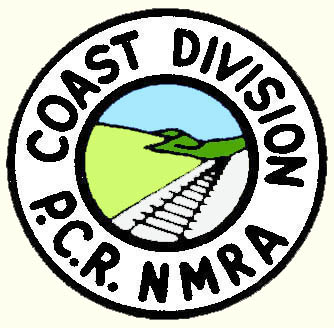The following history of
GM&O
Ingalls Diesel #1900 was written in 1999 by:
Demetre Argiro
Lawrenceville, GA
Demetre had a long and personal relationship with the Ingalls unit,
having ridden
in it, and even operated it, for many miles and hours during its
twenty-year service life.
Used with his express permission - thx, Demetre!
He requests that we credit the Gulf, Mobile, and Ohio Historical
Society. Most of the
information below is from the GM&OHS News, issue # 42, 1986.
This issue was
devoted entirely to the Ingalls unit and is a "must read" for anyone
interested in the machine.
This issue can still be ordered from the
GM&O Historical Society.
In 1945 Pascagoula, Mississippi based Ingalls Shipbuilding corp.
announced
their entry into the railway locomotive market with a proposed slate of
five
models. There were two switching engines of 660 (model 16-S) and
1000 hp.
(model 5-S) similar to Alco's S1/S2, a 2000 hp. model 17-S passenger
locomotive that looked sort of like a hybrid cross between an EMD F
unit and a
Baldwin babyface and, finally, a 1000 hp. 3-S and the 1500 hp.
4-S. Of this
extensive line only a single 4-S was built; G M & O 1900.
The engine was powered by a Superior inline eight cylinder adapted
marine
engine of 1840 cubic inches displacement per cylinder for a total swept
volume
of 14,726 cu. in. The engine produced 1650 hp, at 660 rpm of
which 1500 HP was
available for traction.
Only Baldwin, also with its adapted De La Vergne marine engine,
was slower.
Traction motors were the large Westinghouse models that were also used
by
Baldwin. The big 11 pole Westinghouse motors necessitated a six
inch longer
wheelbase than did the GE motors used by Alco.
Truly a pioneer in the world of diesel locomotives, the 4-S employed
features
that were years ahead of its time, some of which have never been
replicated byany other builder.
One such feature was the turret cab which appeared on the scene again
in 1961
when Kraus-Maffei, A. G. sent 21 units to D&RGW and SP from their
Munich,
Germany plant. The K-M units looked for all the world like a
second
generation progeny of Ingall's unit. The KM's were not, of
course, and failed
miserably in North American service due to their excessively high
maintenance costs,
while the lone 4-S, now 16 years old, toilled loyally on.
Another feature never seen on another U.S. built locomotive was the
passenger
car like vestibule at the rear . This feature was actually
designed with the
purpose of crew comfort, safety and ease of use in mind. In
inclement weather
the ground crew could be sheltered from the elements and could even go
inside
the locomotive's roomy machinery spaces to put on rain or snow gear,
and dry
off or warm up. When switching along line of road, mounting and
dismounting
from the unit was very easy.
Once, while the unit was working the J&O local between Okolona, Ms.
and
Jackson, Tn., the Okolona Yardmaster was instructed by Chief Dispatcher
Bittle
to load down the 1900 to see what it would pull over Booneville
Hill. When
the Chief found out how much tonnage had been put on the engine, he
became
very upset and told Okolona that the unit would never make it over the
hill.
But it did make the hill with more tonnage than any other single unit
had ever handled.
The 4-S was tougher than a Waffle House T-bone. Once, the engine
derailed and
rolled down the embankment coming to rest upside down in the woods
alongside
the right of way. Dragged out, set back on its trucks and towed
to Mobile,
the unit was back in service three weeks later seemingly none the worse
for the wear.
William K. Davis, General Mechanical Inspector for the GM&O said of
the 4-S:
"In my opinion, the 1900 was a fine locomotive." Davis added: "As
to why no
more of these locomotives were built by Ingalls, we learned that it
would take
two years after #1900 was delivered before Ingalls could take adequate
deliveries of electrical equipment from its suppliers, and, thus, they
decided
to exit the market. I am sorry that they could not build more of these
units"
Delivered to the G M & O in June 1946, the unit spent virtually its
entire
service life in Mobile, Alabama, where the author was fortunate
enough to see it
frequently and even ride it on many occasions.
Traded in on new GP 38's, the 1900 went to La Grange in 1967. It
was offered
for sale by EMD for $3000 but there were no takers. In the fall
of that year
the locomotive was hauled across the tracks to Pilet Bros. and reduced
to a pile of scrap.
Click
on the following links to see more information about this unique
one-of-a-kind North American diesel locomotive:
1) The Superior diesel engine used
in the Ingalls Diesel, by Will Davis:
http://www.geocities.com/wbd641/SuperiorDiesels.html
Will also has a nice web site on Locomotives at
http://www.geocities.com/wbd641/locomotives1.html
2) The text and description above, used by permission of the
original author, Demetre Argiro.
3) The GM&O Historical Society issue #42 is devoted to this
diesel, see more at :
http://www.gmohs.org
4) The Ingalls Shipbuilding Co. 1500-hp. road locomotive, Model
4S, is described in the:
Model Railroader Cyclopedia - Volume 2: Diesel
Locomotives page 108
5) Here are three O scale model photos that were posted online on
the Atlas O Forum, a scratchbuilt model by Malcolm Byrnes (used with
permission) :
http://forum.atlasrr.com/forum/data/alcors2/2006129133820_ingalls_red_almost.JPG
http://forum.atlasrr.com/forum/data/alcors2/2006131204759_ingalls_ok2.JPG
http://forum.atlasrr.com/forum/data/alcors2/2006210211856_ing_4s_finished.JPG
6) Here is a nice side view picture of the GM&O #1900 Ingalls
diesel, from the Northeast Railfan web site (allow some time to load,
this web site isn't very fast):
http://www.northeast.railfan.net/images/tr_gmo1900.jpg
Web page by John Sing, singj@us.ibm.com, Coast Division Model Contest
Chair-flunkie, Pacific Coast Region, NMRA
All rights reserved - September 2006

